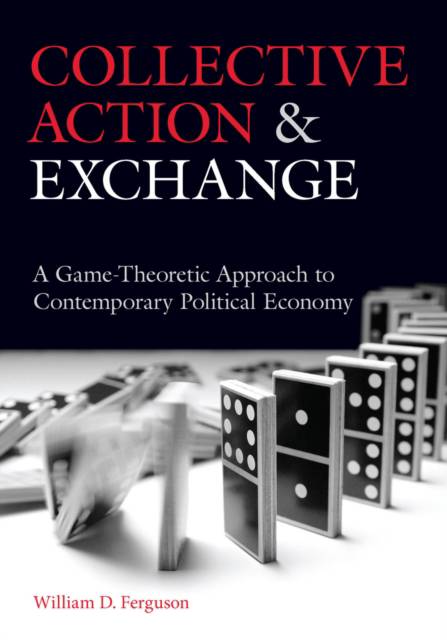
- Afhalen na 1 uur in een winkel met voorraad
- Gratis thuislevering in België vanaf € 30
- Ruim aanbod met 7 miljoen producten
- Afhalen na 1 uur in een winkel met voorraad
- Gratis thuislevering in België vanaf € 30
- Ruim aanbod met 7 miljoen producten
Zoeken
Collective Action and Exchange
A Game-Theoretic Approach to Contemporary Political Economy
William D Ferguson
Hardcover | Engels
€ 322,45
+ 644 punten
Uitvoering
Omschrijving
In Collective Action and Exchange: A Game-Theoretic Approach to Contemporary Political Economy, William D. Ferguson presents a comprehensive political economy text aimed at advanced undergraduates in economics and graduate students in the social sciences. The text utilizes collective action as a unifying concept, arguing that collective-action problems lie at the foundation of market success, market failure, economic development, and the motivations for policy. Ferguson draws on information economics, social preference theory, cognition theory, institutional economics, as well as political and policy theory to develop this approach. The text uses classical, evolutionary, and epistemic game theory, along with basic social network analysis, as modeling frameworks. These models effectively bind the ideas presented, generating a coherent theoretic approach to political economy that stresses sometimes overlooked implications.
Specificaties
Betrokkenen
- Auteur(s):
- Uitgeverij:
Inhoud
- Aantal bladzijden:
- 446
- Taal:
- Engels
Eigenschappen
- Productcode (EAN):
- 9780804770033
- Verschijningsdatum:
- 24/07/2013
- Uitvoering:
- Hardcover
- Formaat:
- Genaaid
- Afmetingen:
- 183 mm x 254 mm
- Gewicht:
- 952 g

Alleen bij Standaard Boekhandel
+ 644 punten op je klantenkaart van Standaard Boekhandel
Beoordelingen
We publiceren alleen reviews die voldoen aan de voorwaarden voor reviews. Bekijk onze voorwaarden voor reviews.







